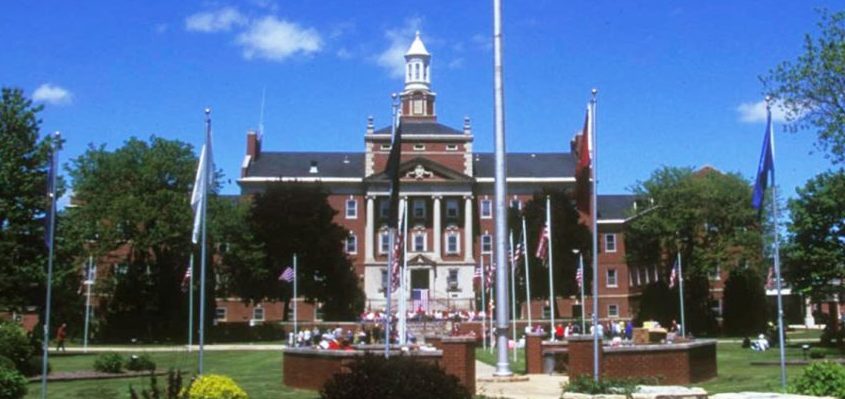
A MacIver Exclusive
[bctt tweet=”The pharmacy’s troubles come three years after news broke of widespread overprescription of painkillers at the VA medical center – a facility pejoratively billed by some as ‘Candy Land.’ #wiright #wipolitics” username=”MacIverWisc”]By M.D. Kittle
MADISON, Wis. – A climate-control malfunction last month at the Tomah VA Medical Center outpatient pharmacy may have compromised medications and, ultimately, the health of veterans who took the prescription drugs, sources told MacIver News Service this week.
A Tomah Veterans Affairs Medical Center spokesman confirms the incident but asserts patient care was not affected.
On Sunday, Dec. 17, the temperature inside the pharmacy spiked to as high as 97 degrees for at least an hour, according to a veteran with knowledge of the situation.
One source, who asked not to be identified, said pharmacy directors OK’d the release of medications for about four hours, until administrators told them to stop distributing the drugs at around noon. Pharmacy employees were told to tell veterans that there was a “supply issue,” according to the source.
One source who spoke to MacIver News Service said the medications subjected to the heat spike in the pharmacy included some treatments in pill form for serious health disorders.
Narcotic medications, such as painkillers, are stored in a separate air-conditioned vault, so were not subjected to the heat spike, according to one source.
Pharmacists were instructed to pull antibiotics from the Tomah VA Medical Center’s inpatient side to fill those prescriptions, a patient told MacIver News Service.
Everything else exposed to the high heat was eventually pulled and pharmacists told medical center patients that they would fill prescriptions as soon as possible in the coming days, according to one source familiar with the situation.
“You name it. If it wasn’t a narcotic or controlled substance, it was everything else,” the source said. “Even glucose test strips – those were trashed.”
Dozens of the pharmacy’s customers could be affected, the source added.
“The VAMC Tomah pharmacy processes hundreds of prescriptions daily,” the center’s website states.
Tomah VA Medical Center spokesman Matthew Gowan acknowledged a problem at the pharmacy but said “there was no medicine shortage.”
“Tomah VAMC’s outpatient pharmacy experienced a temperature fluctuation on December 17, 2017, and was fixed the same day,” Gowan said in a statement to MacIver News Service. “Outpatient pharmacy staff reviewed stability recommendations of its medication inventory and reordered items as necessary.”
Gowan insists patient care was not affected.
Exposure of medicines to high temperatures can reduce their efficacy, in some cases causing serious health problems.
“For patients with such chronic illnesses as diabetes or heart disease, a damaged dose of crucial medicine, like insulin or nitroglycerin, can be life-threatening. But even common medicines can break down with potentially harmful effects, and you can’t always tell by looking at the pill or liquid that a problem has occurred,” Janet Engle, a pharmacist and past president of the American Pharmacists Association told the New York Times in 2011.
[bctt tweet=”Drugs should not be exposed to temperatures higher than 86 degrees, pharmaceutical experts warn. The #TomahVA pharmacy reached as high as 97 degrees. #wiright #wipolitics” username=”MacIverWisc”]One source who spoke to MacIver News Service said the medications subjected to the heat spike in the pharmacy included in pill form some treatments for serious health disorders. Some were anti-diabetic medicines such as Metformin, anti-epileptic drugs like Gabapentin, anti-viral medications and Lidocaine patches, and wound cleaners, according to the source. Over-the-counter meds, too, from eye drops to suppositories, may have been compromised.
Drugs should not be exposed to temperatures higher than 86 degrees, pharmaceutical experts warn.
In November, at least six veterans filed a class-action lawsuit against the federal government following reports that a Tomah VAMC dentist may have spread blood-borne infections among his patients in using unsterilized equipment.
Gowan could not say why the temperature fluctuation occurred, but a Tomah VAMC patient tells MacIver that climate control has been a problem at the VA pharmacy for about a year. Responding to a follow-up email on whether patients received medicines subjected to the heat surge, the spokesman said the pharmacy supervisor had left for the day so he could not answer the question.
The pharmacy’s troubles come three years after news first broke of widespread overprescription of painkillers at the VA medical center – a facility pejoratively billed by some as “Candy Land.” At least one veteran died of a drug overdose at the Tomah VA hospital, sparking several investigations. A 2016 report from the Senate Homeland Security and Governmental Affairs Committee, chaired by Wisconsin U.S. Sen. Ron Johnson (R-Oshkosh), found “systemic failures” of misconduct and abuse plagued the medical center.
Nearly a year ago, David Houlihan, Tomah’s chief of staff who was called the “candy man” for his alleged liberal opioid prescription policies, surrendered his Wisconsin medical license.
In November, at least six veterans filed a class-action lawsuit against the federal government following reports that a Tomah VAMC dentist may have spread blood-borne infections among his patients in using unsterilized equipment.